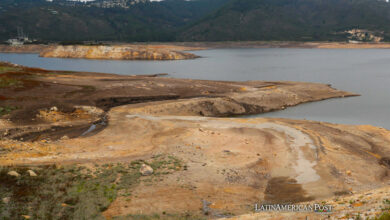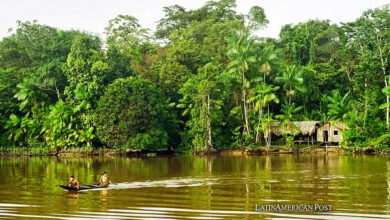World Bank and Climate Finance: An Open Wound of Unclearness
A Recent Oxfam Report has Highlighted how the World Bank and Rich Countries are Engaging in Unclear Accounting Practices When it Comes to Climate Money.

Photo: Pixabay
LatinAmerican Post | Julián Andrés Pastrana Cuéllar
Listen to this article
Leer en español: Banco Mundial y financiación climática: una herida abierta
The financing projects of the World Bank, which would be destined for the fight against climate change, would be oversized and, therefore, a false sensation would be generated that this serious phenomenon is being effectively fought. The opacity and lack of clarity regarding the funds that the World Bank contributed to combat the climate crisis in 2020 could lead to an error of 40%, that is, the equivalent of USD 7 billion.
At least that is what emerges from an article by the Bretton Wood Project, which, in turn, cites a recently published report by Oxfam. Said report gives an account of how the World Bank, despite being one of the largest contributors in terms of the fight against climate change, has lacked greater transparency in its accounts. The analysis concludes that the conditions must be met for an independent verification to restore confidence in the aid that the multilateral entity has provided for this purpose.
The World Bank would not be meeting its objectives aimed at climate action
From the Oxfam study, it is inferred that the World Bank, far from what that same entity has stated, has not met the objective that 28% of its portfolio in fiscal year 2020 has been directed to financing for the climate.
Said financing -assures the Bretton Wood Project based on the analysis of the Oxfam report- is crucial for the nations less involved in climate change to adapt to this phenomenon, while transforming their economies without jeopardizing the fight against poverty. However, the promise made by developed countries in 2009, to invest USD 100 billion a year to counteract global warming, apparently is not being fulfilled.
Loans instead of grants worsen the picture
The situation is aggravated if it is considered that 64% of those resources delivered for the financing of actions in favor of the climate were transferred through the figure of debt instruments that had to be paid and not subsidies. In this regard, Nafkote Dabi, head of climate change policy at Oxfam International, believes that: “forcing poor countries to repay loans in order to cope with the climate crisis to which they have barely contributed is deeply unfair. Instead of supporting countries facing worsening droughts, cyclones and floods, rich countries are undermining their ability to cope with future shocks, as well as deepening their poverty levels.”
After an analysis of the funds that the World Bank gave to the fight against climate change, Oxfam was able to conclude that said body would be overreporting or underreporting the amount of money contributed for this purpose, which in white money would mean a lag of USD 7 billion. In other words, the World Bank would not be meeting the goal of having 28% of its portfolio represented in resources against climate change, but rather that figure would be around just 19%.
We recommend you read: Balance of the COP27: progress in climate justice, but at too slow steps
Rich countries would also be inflating their contributions
The situation would be more serious if one considers that, in Oxfam's opinion, rich countries are also engaging in dishonest accounting practices that make it appear that they are making great efforts in the fight against the climate crisis, when in fact their true Contributions would be oversized, with regard to the year 2020, by 225%.
This means that, of the 68,300 million that the developed countries would have allegedly contributed to alleviate the effects of global warming in 2020, only between 21,000 and 24,500 million would have actually been delivered.
On this point, Nafkote Dabi asserts that “rich countries' contributions not only continue to be well below the contracted target, but they are misleading by accounting for climate finance in a way that is neither correct nor adequate. These countries are overestimating their own generosity and painting too rosy a picture, while hiding the amount that actually goes to poor countries.”
This type of research is presented at a crucial moment, since the countries of the global south have been putting on the table the need for international monetary policy, related to climate change, to have transformations. In fact, this was one of the most critical points during COP27, in which it was established that a fund for climate justice would be created. Likewise, it is worth remembering the speeches that have recently come from the Colombian government, in which they have asked to renegotiate the foreign debt. "The IMF must initiate the debt exchange program for investment in the adaptation and mitigation of climate change in all the developing countries of the world. The economic blockade policies today do not favor democracy and go against the times of humanity to act against the crisis", said Gustavo Petro in his COP27 speech.




